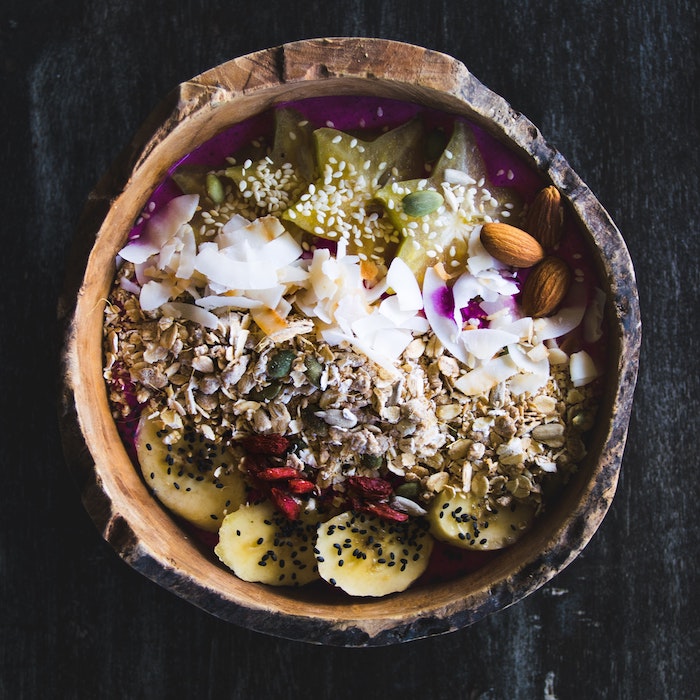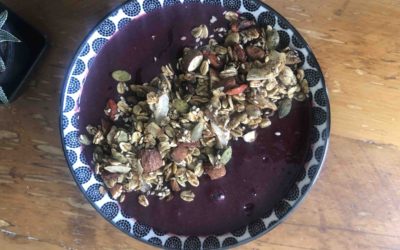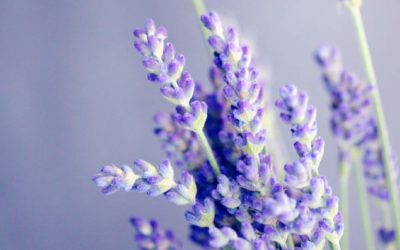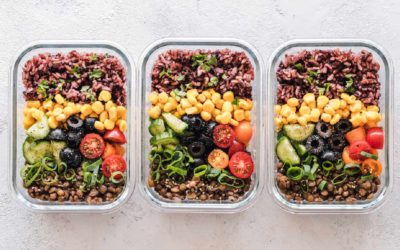The world is like a microbial soup
Perspective is a fascinating concept. How you view something can change radically with just a tiny bit of additional information. For me, that ‘aha’ moment came with a random comment along the lines of “humans live in a microbial soup”. Now, that this is, indeed, true—microbial life is everywhere. And all things COVID (and Ebola, TB, Zika, malaria, etc.) aside—for the large part we co-exist pretty well.
I even went so far as to begin to picture myself like a microbial passenger vehicle—a device to transport my personal colony of microbes around the world. It amuses me to think that it’s really microbes that rule the world—we humans merely the provider of transport and food for them. Which got me thinking—as I cannot exist without them, maybe I should be prioritising their welfare a little more; caring about their health as much as I care about mine. This was not too far a leap as I am well aware that my bugs also look after me.
You may be wondering which bugs I’m referring to. Well, it’s been quite a while now since the term ‘gut microbiome’ first popped on the health scene so it’s likely you’ve come across some reference to this vast microbial colony in one way or another—perhaps as a ‘good vs. bad’ bacteria comment in an article somewhere—an oversimplification, but still used by some advertisers to draw your attention to the latest probiotic someone wants to sell you or to persuade you to change your diet in some way.
Now, whilst I don’t agree that everyone needs a daily probiotic, I do want to bring your awareness to the latter point, which is your food choices. Because just as you choose appropriate food for your pets at home, what we’re discussing here is being equally mindful of what you’re feeding your trillions of gut bacteria—your mutualistic pets!
Microbiome 101
But first, if you’re not up to speed with the gut microbiome, here’s a quick 101. Different numbers are thrown about but, depending on how they have been counted, there are claims of between 37 and 100 trillion microbes living in or on the human body, most of which are in the gut. Regardless of which of these numbers is ‘correct’, for these purposes, it’s enough to know we’re talking trillions! So many, that the gut microbiome is estimated to weigh 2 kgs collectively.
This diverse microbial colony resides predominantly in the large intestine (the colon). A small percentage do migrate a little way into the small intestine, but these ‘should’ be swept back into the large intestine routinely by natural wave-like motions that occur through the gut. This is good, as they’re not supposed to set up house long-term in the small intestine (that causes its own dramas) but to instead do their thing in the colon—their thing largely being to ferment residual food particles and, in the process, create by-products; many of which are good for us.
A healthy gut microbiome = a healthier life
Whilst the ‘science’ here keeps on developing, we now know that a healthy gut microbiome plays a role in many areas of human (and animal) health ranging from helping digestive processes, regulating our immune system (important in this COVID world we now live in), helping protect us against more problematic and disease-causing bacteria, reducing inflammation, synthesising some vitamins, and producing molecules called short-chain fatty acids (e.g. butyrate) which support gut health and are also a food source for other beneficial bacterial gut species.
Indeed, it would be pretty much impossible to live without our tiny, microscopic mates and I hope that by knowing more about them, you may feel more motivated to look after them the best you can.
How do you feed your gut microbiota?
Well, number one is via your dietary choices. Like it or not, you need to start by eating fibre and lots of it. In much of the world, fibre seems to be disappearing from our day-to-day foods at a rapid rate—as ‘food-like’ substances hit the shelves in more and more processed and refined ways. This means you have to become more informed so you can focus on getting enough fibre—likely a lot more than you are currently getting—to feed your bugs. Another way to look at it is this—when you eat refined sugar or starch, maybe its white bread or freshly cooked pasta, you are providing yourself with some food that your body can break down and utilise (for good or bad)…but not a lot is going to make it to your gut bugs because the composition of these types of foods are largely devoid of the fibre they want to eat. This is not good.
Instead, the majority of your food choices should be those that naturally contain fibre, which means eating from a wide variety of mainly vegetables and fruit, nuts and seeds, as well as some pulses (e.g. lentils, chickpeas/garbanzos, mung beans, edamame) and some whole grains (e.g. quinoa, wild and brown rice, some spelt or wholewheat if you can eat it).
As fibre comes in soluble and insoluble forms, eating widely from plant based food sources will give you a range of both—basically, if it’s in a form that it would resemble in nature (meaning unrefined and unprocessed) and you have to crunch it up and chew it with some effort then that’s likely fibre!
Picture what happens to that food (and fibre). Some will get digested quite quickly and these are the parts that fuel your body—whilst the fibre keeps going to the large intestine and that’s what will feed your gut bugs. It’s not wasted and it’s not just about ‘keeping you regular’!
I wanted to keep it simple, so whilst there are other guidelines to support a healthy gut microbiome, let’s just say many you may already know as they apply to general health too—namely, reduce/remove alcohol, stay hydrated with lots of plain water, avoid refined/processed food-like items. Oh, and only take antibiotics if you really, really have to.
Make what you eat count for both you and your gut microbiome
Maybe you didn’t know all of the above, nor think of your gut bugs as friends to be cared for—and that’s 100% fine. But now you do, which means it’s your responsibility to pay attention to all your little microbial mates inside and feed them well. But they, in turn, will thank you by supporting your immune system—as well as other aspects of your health and wellbeing.
So, when choosing what to eat, you could do worse than adopting one of my healthy life mantras to remind yourself to do the right thing—namely choose wisely.
Just think, “feed me, feed my bugs”.
Feature image by il vano on Unsplash




